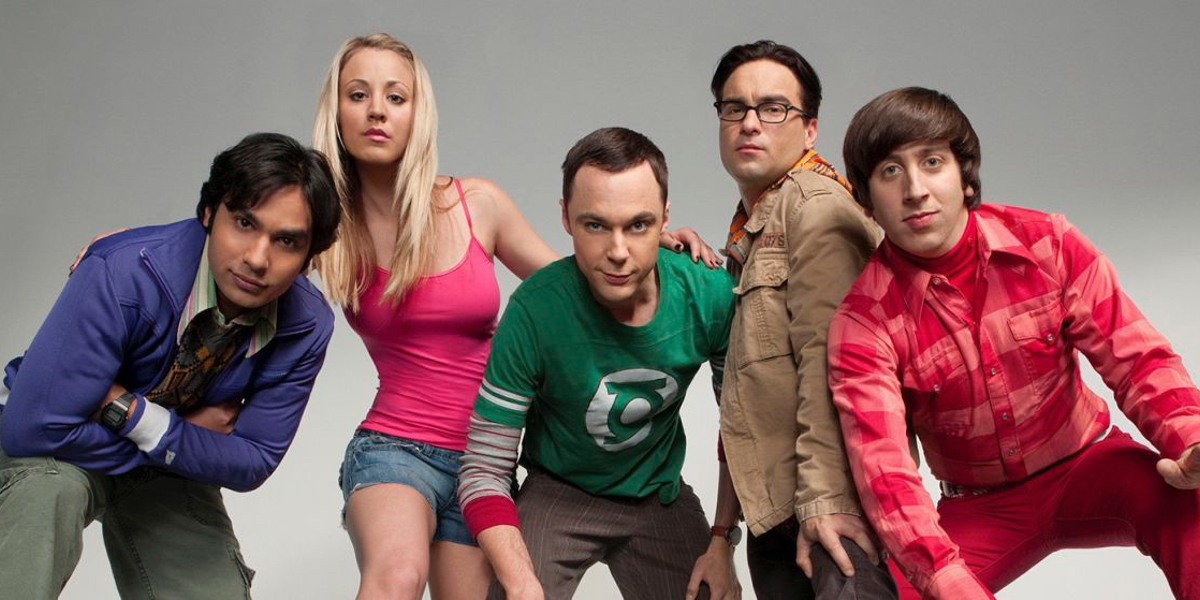Today, the curse was finally broken and CBS announced that The Big Bang Theory was blessedly coming to an end. The long-running series has drawn frequent criticism for its depictions of women, people of color, and disabled characters; it oftentimes turns them into punchlines for the audience to laugh at, rather than well-rounded characters.
The show also is a horrible way of viewing nerd culture, though an argument could be made that terrible Leonard, with all his grossness, is a pretty accurate depiction of white male nerd entitlement and wish fulfillment.
Stories about geeks are popular, because geek culture has become something easily commodified and marketed. But films and television series centered around nerds, fans, and others who operate inside that culture tend to be written by white men, to be about white men, and take a more mocking look at what it means to be a geek. The Big Bang Theory is the most well-known option, but also consider the film Fanboys as a case study.
That forgotten comedy centered on a group of friends — all white, with one token woman — plotting to steal The Phantom Menace before it was released, as one of them is dying and wants to see it before he passes. Filled with cameos from everyone from Kevin Smith to Carrie Fisher herself, the film is crass and crude, favoring bad jokes over the sentimental story at the heart. The main male characters are all ridiculous parodies of what we expect fanboys to be, and the one woman, played by Kristen Bell, is a prize for one of them at the end.
The worst scene is when the gang is being tested on if they’re true fans. They ace the trivia questions, but when it comes to a question about sex, they’re all stumped, save for our token woman. That, apparently, proves they’re true Star Wars fans. Not the best joke. It wasn’t funny back then and it’s even less funny now.
Interestingly enough, it’s YA literature that has seen the rise of a more nuanced take on geekdom, primarily through female authors who include a more diverse array of characters in their books. Rainbow Rowell’s Fangirl, Anna Breslaw’s Scarlett Epstein Hates It Here, Hannah Moskowitz and Kat Helgeson’s Gena/Finn … there’s a long list of YA books centered on young people in fandom and their struggles. (Of course, as a Mary Sue-vian I’d be remiss if I didn’t mention the nonfiction The Fangirl’s Guide To The Universe by former editor Sam Maggs).
Ashley Poston’s Geekerella is my favorite of the geek girl books. Elle is a fan of the cult sci-fi show Starfield and hates the reboot’s cast; Darien, the star of the rebooted Starfield, is looking for someone to connect with. When chance brings them together, they slowly fall in love via text; their romance is one of the cutest I’ve read in a long time.
Elle feels like a real fan of something and a true example of geek culture and the way we can find escape through fiction, and as a result, the book manages to avoid most of the traps of writing about fandom. A sequel called The Princess and the Fangirl will be coming out next year.
It’s time for these stories to take place onscreen as well, which is why I propose the next big show about geeks and geek culture be written by women, including women of color, LGBT+ women, and disabled women. There needs to be an honest portrayal of how geek culture can form a community for marginalized identities who are shunned by both “regular” society and the subculture they try to join. The popularity of sites such as this one, Black Girl Nerds, SyFy Fangrrls, Nerds of Color, and others show that there is not only a market for stories about non-cishet, white male nerds but plenty of women who could write such a show.
Geek culture is big. SDCC is no longer niche but the event of the year. Actors let their geek flags fly, and fandom subculture is key to a show’s marketing now. If we are embracing fandom and geekiness, we need to embrace all facets of it and stop presenting the cishet, white male experience as the norm.
The trope of the virginal, awkward, entitled white nerd who gets the hot girl at the end is overdone. Shine a light on the way LGBT+ fans found a voice through Kirk/Spock shipping, or tell a story about the founders of WakandaCon. Simply put, let there be a new face and voice to geek culture. Preferably written by nerdy women who have lived through the rise and fall of LiveJournal and other fandom sites.
The Big Bang Theory is dead. Long live whatever comes next. Just let it be about women.
(via Vulture; Image: CBS/Warner Bros)
Want more stories like this? Become a subscriber and support the site!
—The Mary Sue has a strict comment policy that forbids, but is not limited to, personal insults toward anyone, hate speech, and trolling.—









Published: Aug 22, 2018 03:44 pm